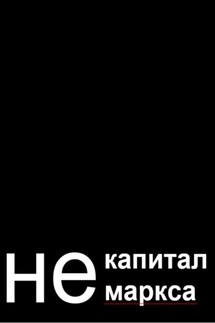The General Theory of Capital: Self-Reproduction of Humans Through Increasing Meanings - страница 36
“When one has acquired the habit of viewing the millennial sweeps and grand contours, and individuals have shrunk to insignificance, it is very easy to deny them consequential influence, even any influence—and therewith one stands in the gateway of belief in undefined immanent forces; a step more, and the forces have become mysterious” (Kroeber 1952, p. 9).
The difficult questions arise as to whether the individual is the origin of all action, whether he plays a significant role in the evolution of culture and whether man has free will at all.
Hard problem of subject
As with natural selection, in the early stages of mixed selection, individuals were not its agents but merely inactive elements of self-reproducing populations—imitators and followers of first animal and then human traditions. A single human cannot reproduce himself. A human alone cannot give birth to or raise another human. He cannot even retain his common sense when alone. But as meanings accumulated in the course of mixed selection, the experience and sophistication of primitive communities increased, and with it the agency of individuals.
The increasing complexity of technologies, organizations and psychologies implies the emergence of consciousness and personality as its manifestation. Man becomes (self-)conscious and is a personality when he detaches himself from the community and at the same time searches for himself in a community of which he is a part. Michael Graziano writes that consciousness is a model of attention: we attribute attention to other people and therefore attribute it to ourselves (Graziano 2013). We would rather say that consciousness is a model of meaning: we attribute it to others and therefore attribute it to ourselves. Consciousness is a function that results from mental activity, that is, thinking:
“It is the ability to extract from mental activity its algorithms (methods), to evaluate the adequacy or inadequacy, the quality of one’s actions, to program, regulate and control them. A person extracts the criteria of consciousness from the environment, from its phenomena and moral and ethical standards accepted in the family, the environment and society as a whole” (Wiesel 2021, p. 136).
Consciousness was not given to humans from the beginning. Julian Jaynes wrote in his book The Origin of Consciousness in the Breakdown of the Bicameral Mind (1976) that humans originally had no consciousness and that it only emerged in historical times, perhaps in the age of writing. (Self-)consciousness arose when the “voices” that told a person what to do became the voice of his own mind. He finds confirmation of this in the poems of Homer and other ancient authors:
“In distinction to our own subjective conscious minds, we can call the mentality of the Myceneans a bicameral mind. Volition, planning, initiative is organized with no consciousness whatever and then ‘told’ to the individual in his familiar language, sometimes with the visual aura of a familiar friend or authority figure or ‘god,’ or sometimes as a voice alone. The individual obeyed these hallucinated voices because he could not ‘see’ what to do by himself” (Jaynes 1976, p. 75). “Once established, once a man can ‘know himself,’ as Solon advised, can place ‘times’ together in the side-by-sideness of mind-space, can ‘see’ into himself and his world with the ‘eye’ of his noos [mind], the divine voices are unnecessary, at least to everyday life. They have been pushed aside into special places called temples or special persons called oracles. And that the new unitary nous (as it came to be spelled), absorbing the functions of the other hypostases, was successful is attested by all the literature that followed, as well as the reorganization of behavior and society” (ibid., pp. 287-8).







